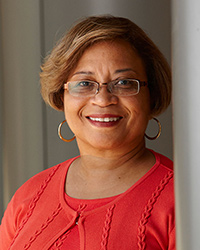Kay Kindred

Kay P. Kindred is the Sara and Ralph Denton Professor at the Boyd School of Law. She teaches in the areas of contracts, family law, education law, children’s law, and law and society.
What’s the most important thing you are working on right now?
As rapidly evolving reproductive technologies have offered new avenues to parenthood, biology and parenthood no longer necessarily go hand in hand. The rise of these new technologies, and an increased use of third parties to assist in the creation or the gestation of an embryo, has created a number of novel legal issues, challenged our collective notions about family and the importance of biology in determining parental rights, and caused confusion and contradiction with the application of existing statutory and common law to resolve issues of parentage. There is surprisingly little regulation of the fertility industry and very little law that directly addresses the rights and interests of participants in the process of assisted reproduction. I am working on a couple of projects looking at some of the legal issues created by the use of Assisted Reproductive Technologies (“ART”). One project is an article looking at the ways in which law, technology, and the market intersect in the area of ART to create both new opportunities and obstacles to parenthood, and how issues of race and class factor into that equation. A second related but broader project focuses on some of the myriad legal and ethical issues generated by so-called “reproductive tourism,” that is, the practice of individuals traveling from one state to another or from one country to another to utilize fertility services or surrogacy services.
How does your research and scholarship influence your teaching and service and vice versa?
My research, teaching, and service interests tend very much to intersect, and work in one area informs that in the other areas. My current project with the Uniform Law Commission (the "ULC," formerly known as the National Conference of Commissioners on Uniform State Laws or "NCCUSL") is a good example of such an intersection. I am a Commissioner with the ULC and, at present, I am serving on a committee charged with amending the Uniform Parentage Act ("UPA"). As a family law professor, this project draws directly upon my research and teaching and uses that work in a very concrete way in the context of my professional service. The UPA, originally promulgated in 1973 ("1973 UPA"), was enacted into law by the legislatures of over half the states, and served as a model for the parentage laws of many other states that did not enact the uniform law in full. The 1973 UPA removed the legal status of illegitimacy and provided a series of presumptions used to determine a child’s parentage. The Act was streamlined and augmented in 2002 to include provisions governing genetic testing and rules for determining parentage of children whose conception was not the result of sexual intercourse. The current project, the 2017 Amendments ("2017 UPA"), addresses parentage issues resulting from changes in related laws or changes in the technology of assisted reproduction that have occurred over the last fifteen years. For example, the 2017 UPA seeks to, among other things, ensure equal treatment of children born to same-sex couples, (changes required to address potential constitutional infirmity of the Act resulting from the United States Supreme Court’s decision in Obergefell v. Hodges, 135 S. Ct. 2584 (2015), that held laws barring marriage between two persons of the same sex to be unconstitutional), update the law governing parentage in the context of surrogacy to reflect recent developments in that area, and establish rules governing the right of a child born through the use of assisted conception involving a third-party donor to genetic information. Professional service projects like this one draw directly from my scholarly research and teaching, and in turn, generate ideas and provide insights that I incorporate regularly into my scholarship and teaching.
What is it about being a law school professor that inspires or motivates you?
I believe that I am incredibly fortunate to be able to do what I do for a living. I enjoy teaching, and I’ve been lucky to have many wonderful students through the years. It is extremely satisfying to watch my students as they grow in their knowledge, find their own direction, and follow their passion on the road from law student to attorney. I’ve always considered it a privilege to be able to use my own legal training to make a positive contribution to my profession and to my community. It is no less a privilege to be able to play some small part in helping to prepare my students to be in a position to make their own contributions as members of the legal profession.